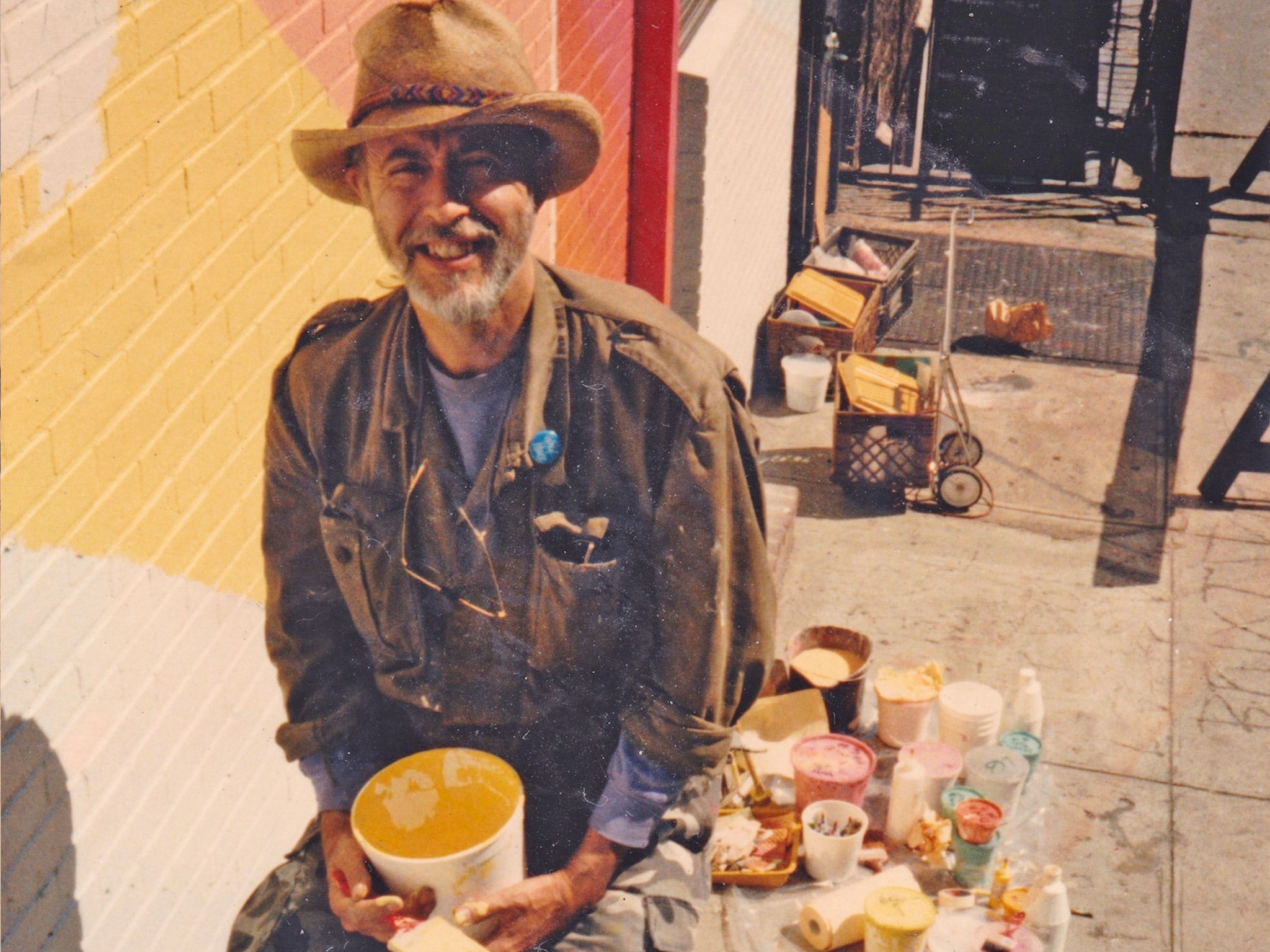Austin John Marshall: Graphic artist, record producer and songwriter who played a key role in the folk revival of the 1960s

Austin John Marshall, record producer, folk-revival ideas man, lyricist and songwriter, performance poet and muralist, created, nurtured or acted as cultural midwife to many strands of art. His fingerprints are all over Shirley Collins & Davy Graham's folk roots, new routes, Shirley & Dolly Collins' magnum opus Anthems in Eden, Ultravox!'s pre-Midge Ure incarnation Tiger Lily and English songwriter Steve Ashley's groundbreaking Stroll On. He also contributed footage to Peter Neal's Jimi Hendrix film Rainbow Bridge (1972) and to the Incredible String Band's film Be Glad for the Song Has No Ending (1970).
He was the first of two children born to Austin Frederick, who was shot down over the North Sea, and Julie Marshall. After studying at the Slade and the London College of Printing he was assistant art editor at Vogue before advancing to The Observer.
In early 1960 Shirley Collins returned to England, after accompanying the folklorist Alan Lomax on a collecting trip of the southern US states. Before sailing to America in 1959 the folk singer had recorded a batch of tracks with the broadcaster and barn-dance musician Peter Kennedy for the English Folk Dance and Song Society. In her absence some emerged on the 1960 albums A Jug of Punch – Broadside Ballads Old and New, A Pinch of Salt – British Sea Songs Old and New and Rocket Along – New Ballads on Old Lines. All three had a freelancing Marshall's cartoon-like cover artwork. Not long after her return they met at the Kennedy home. They married in 1961.
It was Marshall's idea to unite her and the stringed-instrument innovator Davey Graham for the important yet ultimately ill-starred folk roots, new routes (1964). "An awkward pun," Marshall wrote of the title in Folk Scene's March 1965 issue, "but an accurate description of as varied a mixture that can have ever been served up on one platter." It polarised and puzzled; it was judged either to be a masterpiece, or as never quite gelling as a duo album. Graham's assiduous drugging made him less than ideal for a young mother's career plans. Marshall's later partner, Gill Cook, reissued the LP on Righteous Records in 1980.
Marshall graduated to producer's credits, notably with Collins's The Sweet Primeroses (1967). At his suggestion it brought her together with her sister, the composer and keyboardist Dolly Collins. It led to the sisters' tour de force Anthems In Eden (1969), which premiered on Radio 1 that August. It was a fusion of folk and early music, one side a cycle of songs themed on the Great War and its aftermath.
The suite's concluding song was Marshall's "Whitsun Dance", set to a traditional tune known variously as "The False Bride" or '"The Week Before Easter". Karl Dallas featured this hugely empathetic song about the generation whose menfolk never returned, the women who danced without men, in his important songbook The Cruel Wars – 100 Soldiers' Songs from Agincourt to Ulster (1972). As "Dancing at Whitsun" it went into Frederick Woods' Oxford Book of English Traditional Verse (1983).
In the throes of separating, Marshall produced the sisters' heart-rending Love, Death & The Lady (1970), about as bleak a missive in traditional song that ever memorialised a break-up. Collins and guitarist Bert Jansch contributed a side apiece to Marshall's new Streetsong label but the label's solitary single foundered and by 1981 he had moved to the US.
By the following February, as John the Angel Fish, he was performing poetry at Greenwich Village's Folk Co-op on MacDougal Street. WBAI Radio proved instrumental in spreading his reputation in the US. He was interviewed for Edward Haber's The Piper In The Meadow Straying show, and the station also broadcast The Great Smudge: A Romance for Street-Organ, a ballad-opera he could never make fly in Britain. Its "Honour Bright" appears on Collins' boxed set Within Sound (2002).
Accompanied by John Caulfield and Mark Dann, Marshall made his singing debut with "The Whitsun Dance" on the LP component of the CooP – Fast Folk Musical Magazine's June 1982 issue, reissued on Smithsonian Folkways. Marshall made New York his base, where he latterly also painted murals.
KEN HUNT
Austin John Marshall, graphic artist, record producer and songwriter: born Leicester 30 March 1937; married three times (one daughter, one son); died New York 3 November 2013.
Join our commenting forum
Join thought-provoking conversations, follow other Independent readers and see their replies
Comments